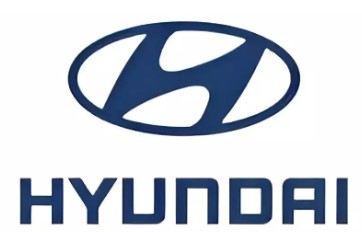
(Photo : Hyundai motor group)
- Hyundai Motor India's shares fell by 7.6% during its market debut, due to concerns over high pricing and an auto industry slowdown.
- The company's IPO was the largest in India's history, raising a record $3.3 billion, but fell short of the targeted $19 billion valuation.
- This debut marked Hyundai Motor's first outside South Korea, but it was the seventh of India's ten biggest IPOs to drop on its debut.
- Despite the initial setback, Hyundai Motor India's COO, Tarun Garg, remains optimistic about the company's future prospects.
Hyundai Motor India, the country's second-largest carmaker, experienced a significant drop in its shares during its market debut on Tuesday, October 22, 2024. The shares fell by 7.6% after the country's largest initial public offering (IPO) received a lukewarm response from retail investors. The concerns were primarily over the high pricing and an ongoing slowdown in the auto industry.
The shares of Hyundai Motor India, which holds a 15% market share in the country, were listed at 1,934 rupees on the National Stock Exchange (NSE). This was below its offer price of 1,960 rupees. By 0917 GMT, the shares were trading down 7% at 1,822 rupees. This gave the company a valuation of 1.48 trillion rupees ($17.60 billion), falling short of the targeted $19 billion valuation through the IPO.
The IPO, which was the largest in the country's history, raised a record $3.3 billion and was oversubscribed more than two-fold the previous week. The majority of the subscriptions came from institutional investors. However, retail investors were deterred by concerns that the shares were priced too high compared to future earnings, leading to worries about potential gains on the listing.
Hyundai's Debut and Market Response
This debut marked Hyundai Motor's first outside its home market of South Korea and was the world's second-largest IPO this year. However, the company's debut was not as successful as expected, making it the seventh of India's ten biggest IPOs to drop on its debut, according to data from Dealogic. The losses of these companies ranged from 5% to 27%.
Analysts have attributed the disappointing market debut to the high share valuation, near-term weakness in car sales, and an increase in the royalty rate paid by the company to its Korean parent. Arun Kejriwal, founder of Kejriwal Research, commented, Hyundai's issue has been stiffly priced and that seems to be weighing down on its listing as well. Besides, the volumes seen so far are driven only by institutional investors, and is rather poor for an IPO of Hyundai's size.
Despite the initial setback, Hyundai Motor India's Chief Operating Officer (COO), Tarun Garg, remained optimistic. When asked about the company's weak stock market debut, he said, Price, of course, will always be determined by the investors. He also dismissed concerns over the increase in the royalty rate to 3.5% from 2.5%, terming it in-line with market benchmark.
Hyundai's Future Plans and Market Outlook
The company's market valuation is much smaller than that of Indian market leader Maruti Suzuki's $45 billion. However, analysts have expressed concerns over the narrower gap in their price-to-earnings (P/E) ratios. The issue had valued Hyundai at 26 times its earnings for the fiscal year 2024 that ended in March, not far off the multiple of 29 for Maruti.
The listing comes at a time when shares of Indian rivals have also slipped in recent weeks as car sales slow after two years of record highs. Customers are delaying purchases due to worries about stubborn inflation. Hyundai's domestic sales in India in the April to September period are down 2.6% from the same time a year earlier, while overall car sales are up just 0.5%, according to the latest industry data.
Despite the slowdown, Garg said it was nothing to worry too much over, attributing it to seasonality, and he expects the industry to rebound. He also stated that the company plans to use the proceeds from the sale of a 17.5% stake in the Indian unit to invest in research and launch new products as it fends off competition from Tata Motors and Mahindra & Mahindra.
* This is a contributed article and this content does not necessarily represent the views of btin.co.in









